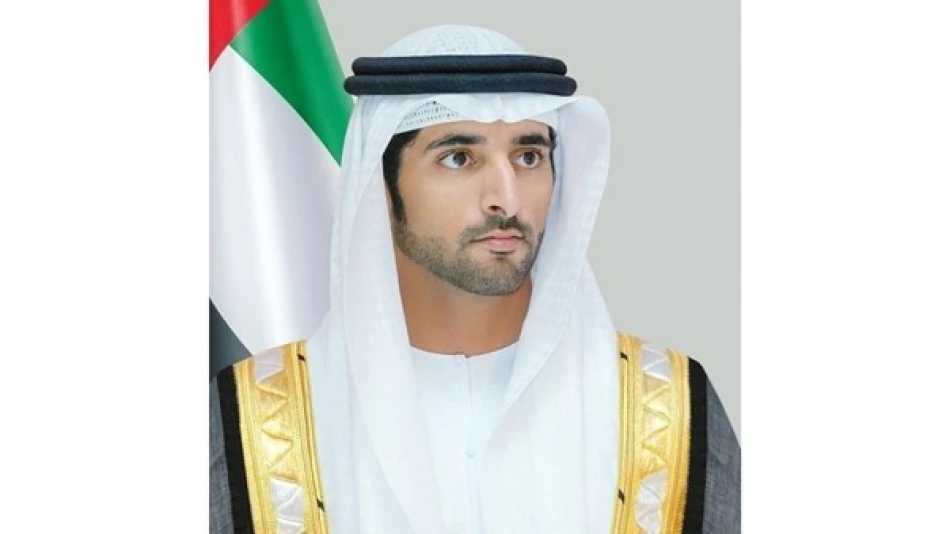
UAE Vice President Celebrates Emirati Woman's Achievements in Shaping the Future
Dubai's Crown Prince Celebrates UAE Women's Day, Highlighting Nation's Progressive Gender Agenda
Sheikh Hamdan bin Mohammed bin Rashid Al Maktoum, Dubai's Crown Prince and Deputy Prime Minister, marked UAE Women's Day with a tribute that underscores the Emirates' continued positioning as a regional leader in women's empowerment. His public acknowledgment reflects the UAE's strategic use of gender equality as both a domestic development tool and international soft power asset.
Royal Recognition Reinforces State Policy
In a post on his official X platform account, Sheikh Hamdan praised Emirati women as "educators of generations, the pulse of compassion, the blessing of the home, and partners in achievement in every field." The Crown Prince specifically credited the unlimited support from UAE President Sheikh Mohammed bin Zayed Al Nahyan and the continuous follow-up from Dubai Ruler Sheikh Mohammed bin Rashid Al Maktoum for women's advancement.
The statement extends special congratulations to Sheikha Fatima bint Mubarak, known as the "Mother of the Emirates" and Chairwoman of the General Women's Union, alongside Sheikha Hind bint Maktoum, emphasizing the institutional nature of the UAE's women-focused initiatives.
Strategic Positioning in Regional Context
The UAE's emphasis on women's participation stands in stark contrast to policies in neighboring Saudi Arabia, which only recently began allowing women to drive and attend sporting events. While Saudi Arabia undergoes gradual social reforms under Vision 2030, the UAE has maintained its early-mover advantage in Gulf gender equality initiatives.
Economic Imperatives Drive Policy
The Crown Prince's remarks align with the UAE's economic diversification strategy, which requires maximum utilization of human capital. Women comprise over 70% of UAE government employees and hold significant representation in sectors from finance to aerospace. This isn't merely progressive posturing—it's economic necessity for a nation transitioning from oil dependency to knowledge-based industries.
Investor and Business Implications
For international businesses and investors, the UAE's sustained commitment to women's empowerment signals policy stability and workforce reliability. Companies establishing regional headquarters in Dubai or Abu Dhabi can expect continued access to educated, professionally active female talent pools—a competitive advantage over markets with more restrictive gender policies.
The public nature of such high-level endorsements also provides reassurance for ESG-focused investors who increasingly factor gender equality metrics into investment decisions. The UAE's approach offers a model for emerging markets seeking to balance cultural sensitivities with modern economic requirements.
Soft Power Dividend
Sheikh Hamdan's closing statement that Emirati women serve as "a source of inspiration for women everywhere" reflects the UAE's broader ambition to influence regional social norms. By consistently highlighting women's achievements, the Emirates positions itself as a progressive alternative to more conservative regional powers, enhancing its appeal to Western partners and international organizations.
This calculated approach to women's empowerment demonstrates how smaller nations can leverage social policies for outsized geopolitical influence, turning domestic progress into international competitive advantage.
Most Viewed News

 Layla Al Mansoori
Layla Al Mansoori






